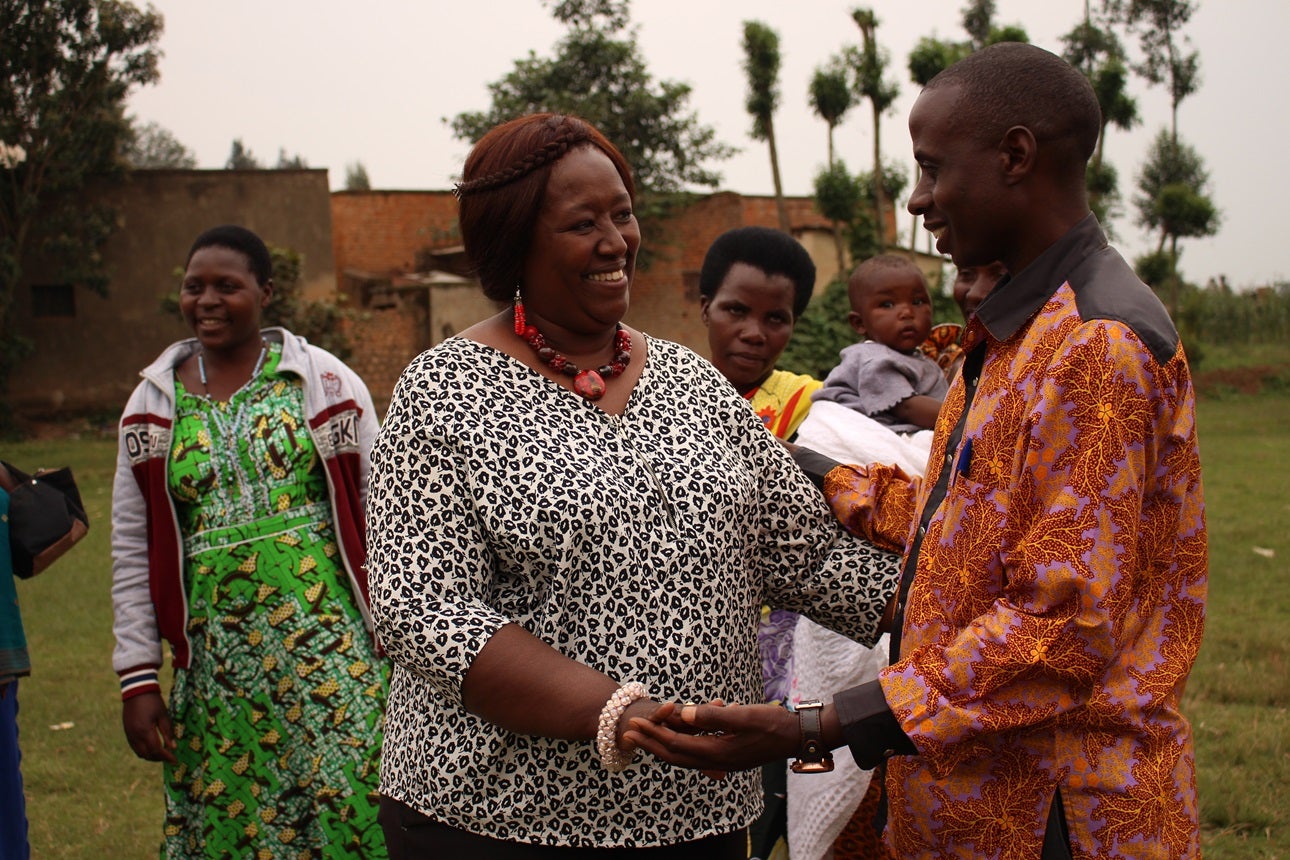'Very few people learn to swim by reading a book'
Dr. Agnes Binagwaho, Rwanda's former health minister, discusses what she would have done differently if she had Exemplars in Global Health research at her disposal at the time

On the one year anniversary of the launch of the Exemplars in Global Health, Exemplars News spoke with the Vice Chancellor of the University of Global Health Equity Dr. Agnes Binagwaho about what global health leaders can learn from the program. As a former minister of health in Rwanda and an Exemplars in Global Health research partner, Dr. Binagwaho is uniquely positioned to explain how decision makers can leverage the Exemplars program to ensure that their strategies reflect the latest research. Dr. Binagwaho, a pediatrician by training, explains how the Exemplars program can help leaders adapt and adopt effective, data-driven interventions, policies, and strategies.
Exemplars News: What would you have done differently as Rwanda's health minister, given Exemplar's research findings and new insights?
Dr. Binagwaho: I would have addressed stunting and neonatal health differently, certainly. I would have really focused on strategies for reducing stunting. We didn’t. I didn’t. We fought malnutrition. But it took us years to do it correctly and to understand malnutrition. And it took years for us to understand that the progress we were making was slow. And when you are measuring stunting, you are waiting years to see impact. So, it is a slow process. When I was health minister from 2011 to 2016, we might have made faster progress if we better recognized the connection between stunting and education and socioeconomic status. At the same time, we have to recognize that Rwanda’s per capita GDP is just over US$800. With that, you have to fill the plates of all of your children. That limits you. Our neonatal health outcomes could have been better if we had recognized neonatal health as necessitating a more targeted response within our under-five mortality work. And focused on this earlier.
Exemplars News: What have you learned through the Exemplars in Global Health research that you wished you knew when you were Rwanda's health minister?
Dr. Binagwaho: In Rwanda, we have long taken an evidence-based approach to improving health. That is how we became an Exemplar in under-five mortality. We have always understood the link between poverty and disease. We also understood that the empowerment of women is connected to better outcomes for children. Exemplars has demonstrated how these connections between women’s empowerment and health and poverty and disease are powerful across countries. Before Exemplars, we had only fragmented knowledge about these relationships in just a handful of countries. Exemplars has provided us with a more holistic understanding and a holistic approach to improve under five survival in particular. Previously, there was discrete research showing how when you improve the status of a woman, the health of her family improves. But it was not a holistic understanding. Exemplars has helped demonstrate that this is the case in country after country.
Exemplars News: What is the most surprising finding we've made in the Exemplars research initiative?
Dr. Binagwaho: When I think about the Exemplars research findings as a whole, two things stand out. One of the most surprising and important findings coming out of the Exemplars research is about the importance of the empowerment of women to health outcomes. Across countries, women’s empowerment was used as a strategy for improving health outcomes. Another important finding is the role of research. We see this in the case of Bangladesh and Rwanda. Countries are able to improve their health outcomes more significantly when researchers are involved with health decision makers. In successful countries, in many of the Exemplar countries, what we see is that decision makers aren’t just looking at what worked in other countries and copying and doing the same in their own country. Rather they are adapting the strategy used successfully by other countries to their own context. Donors in particular are guilty of encouraging countries to simply copy what has worked elsewhere. They come in with their program or strategy that has worked elsewhere and dictate what should be done. Some countries can push back, others cannot or do not.
Exemplars News: How can current health ministers and ministry officials make the most of Exemplars as a resource?
Dr. Binagwaho: Everything is there on the platform. And it is good to read. But people have to have the know-how. And this is not on the page. What this means is that people must customize the learnings from Exemplars. For example, if you want to reduce stunting, the first step is actually to convince people to join you in two ways: first that they will prioritize stunting reduction and second and they agree to establish a country strategy that is led by science. These are a prerequisite to any progress. Then you can study what your population is eating. Identify what are the contextual factors and select the right evidence-based strategies for adapting and implementing. You must identify all the stakeholders, get them all aligned and coordinate them. When they are aligned, they will all be providing women with the same messages and supports. It is easy to say, as I just did, that the country will customize the evidence-based strategy to meet their own needs and context. But how? This is difficult. Very few people can learn to swim by reading a book. You have to go into the water with someone who knows how to swim. This is the goal of the Exemplars in Global Health services team. The team will work to support health decision makers as they apply the evidence and knowledge from Exemplars research to their own countries and contexts.
